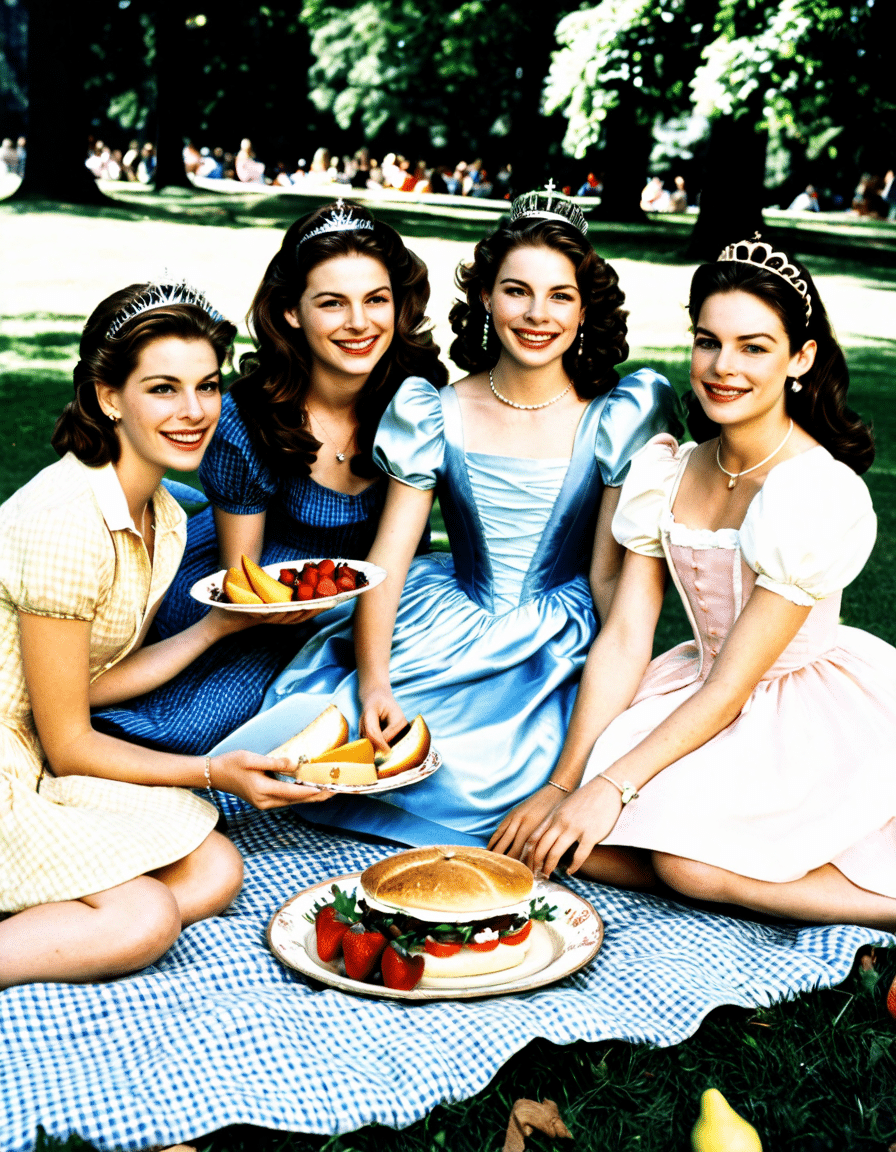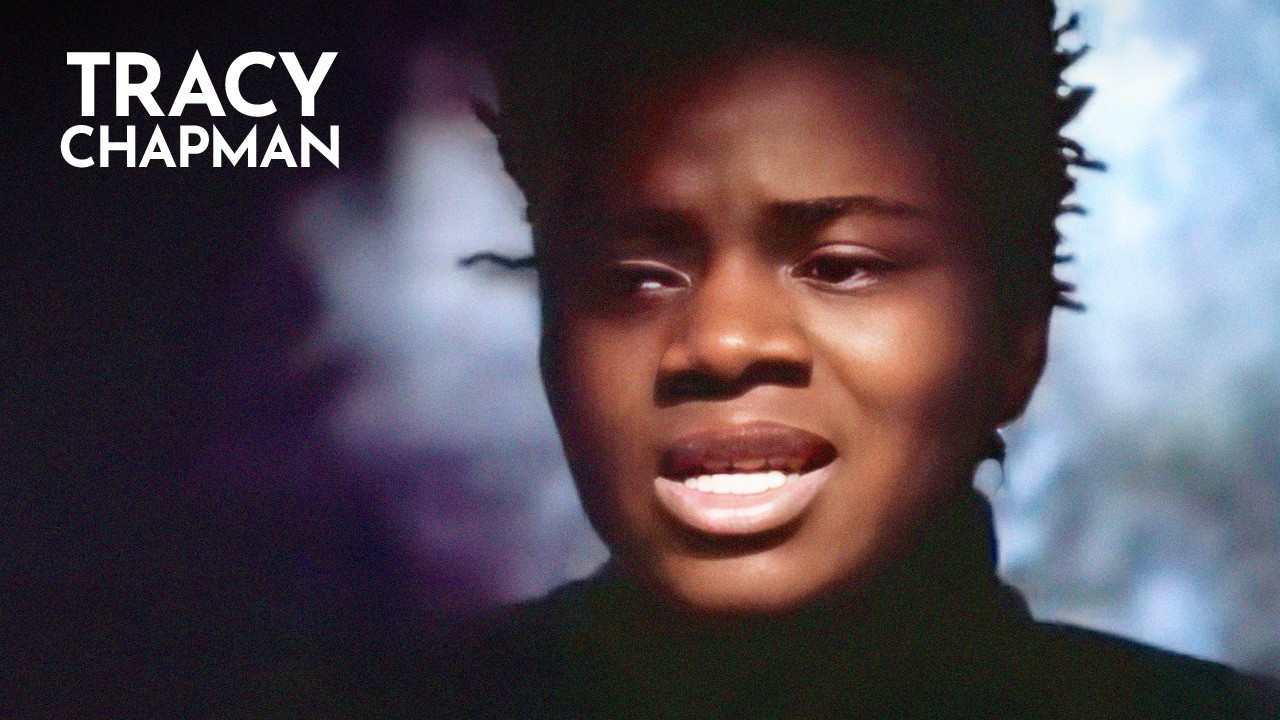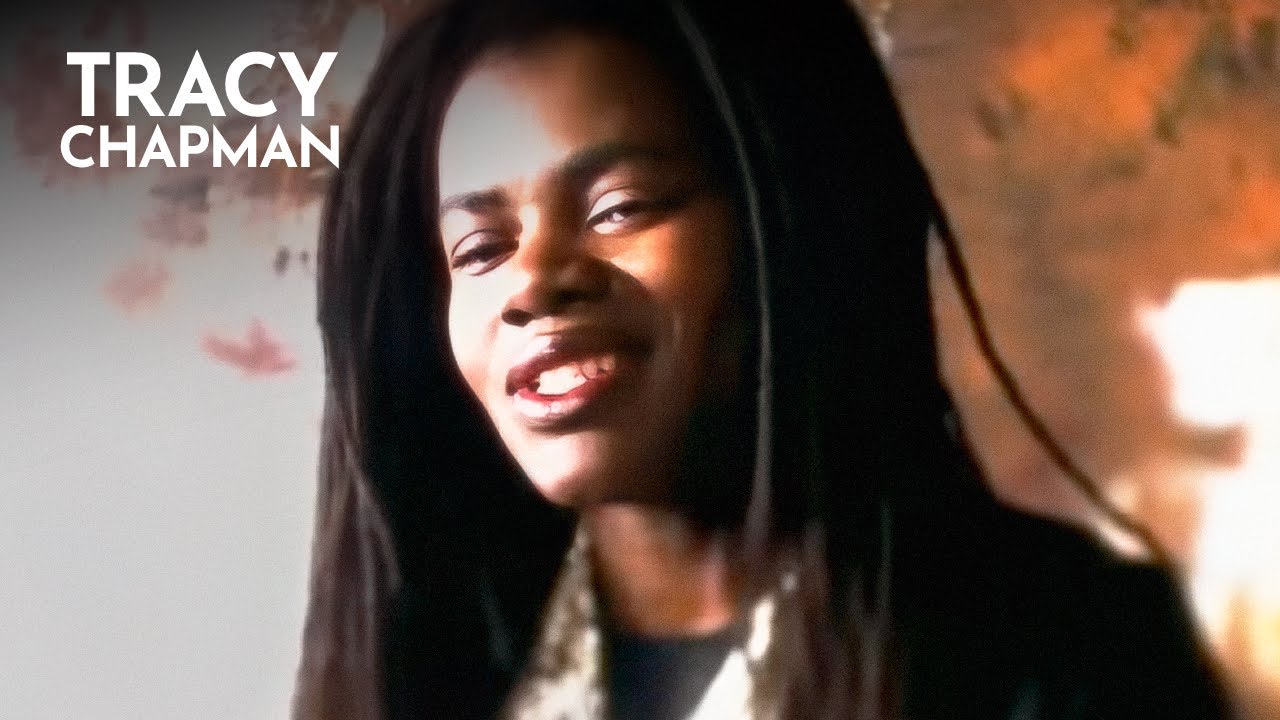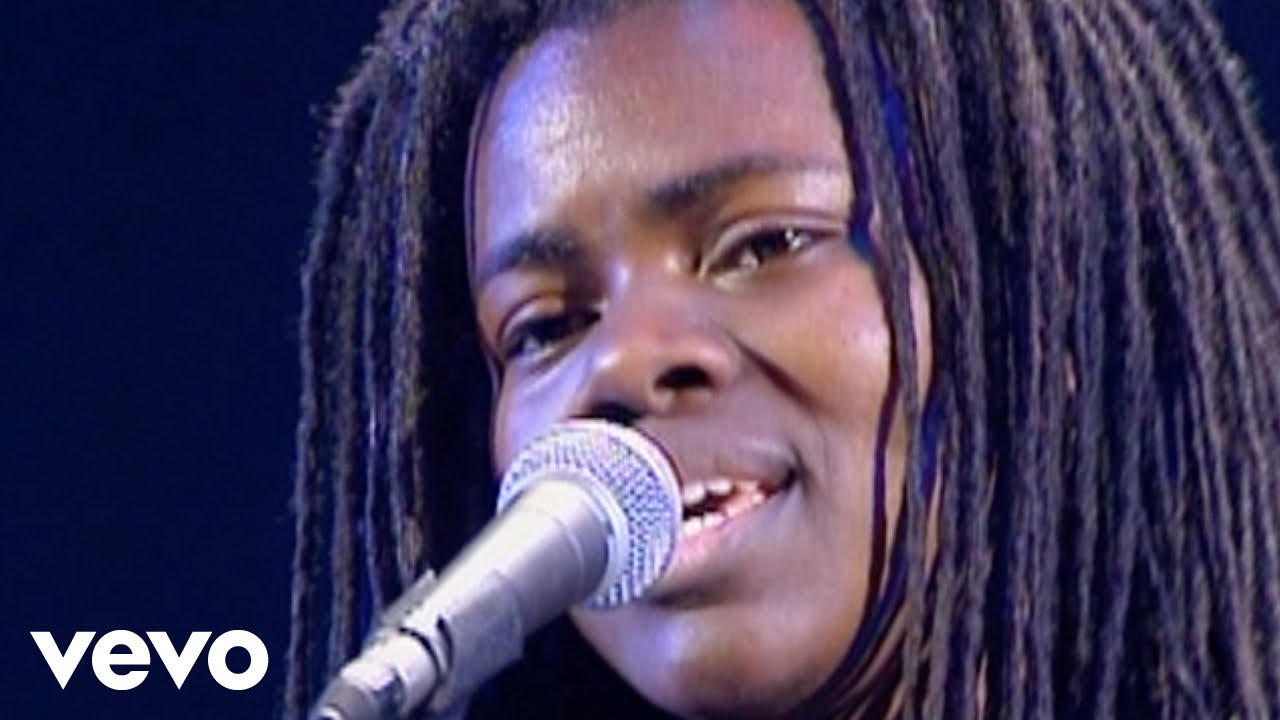Tracy Chapman, a name synonymous with emotion and storytelling, has left an indelible mark on the music scene. With her compelling lyrics and soulful melodies, she has influenced countless contemporary artists across genres. In this article, we’ll dive into how Tracy Chapman continues to inspire musicians and how her artistry transcends mere notes. If you’re a cinephile, you’ll find similarities between her music and many beloved films, making this exploration all the more engaging. So grab your popcorn—this is a journey worth taking!
Top 5 Ways Tracy Chapman Influences Contemporary Artists
With her unparalleled ability to convey deep meaning through song, Tracy Chapman has inspired a generation of artists such as Hozier, Kacey Musgraves, and Kendrick Lamar. Let’s break down some of the most significant impacts she’s had on the music world:
Tracy Chapman’s knack for storytelling has set a powerful standard in the music industry. Take Hozier, for example; his thought-provoking lyrics in songs like “Take Me to Church” echo the emotional depth found in Chapman’s “Fast Car.” Meanwhile, Sara Bareilles channels Chapman’s poetic sensibilities to tackle social issues in her own music, allowing their narratives of love and struggle to resonate deeply with listeners.
Tracy’s socially charged lyrics have paved the way for others like Kacey Musgraves and Janelle Monáe, who also embed messages of empowerment into their music. Musgraves’s “Follow Your Arrow” and Monáe’s “Q.U.E.E.N.” embody the spirit of resilience found in Chapman’s “Talkin’ Bout a Revolution.” These artists show that songs can serve as powerful catalysts for change, challenging societal norms while inspiring listeners to embrace their true selves.
Tracy’s distinct vocal delivery is something many artists strive to capture. While most know Julia Roberts for her acting, her showcasing of vocal talent in “Music and Lyrics” channels that raw emotion similar to Chapman’s. The authentic connection seen in Chapman’s performances resonates with contemporary artists who aim to establish profound connections with their audiences.
Chapman’s willingness to cross genres has led many artists like Kendrick Lamar to explore new musical landscapes. In his collaboration with SZA on “All the Stars,” the mix of hip-hop and R&B captures the essence of what Tracy Chapman represents. Such collaborations reflect her fearless approach to breaking down musical barriers while inspiring new sounds.
Tracy’s commitment to activism not only influences musicians but also inspires prominent public figures. Celebrities like Naomi Campbell and Kristen Stewart have embraced the idea of using their platforms for advocacy, echoing Chapman’s commitment to social issues through her music. Their boldness in speaking out amplifies the impact of her legacy, underscoring that music can be a powerful vehicle for change.
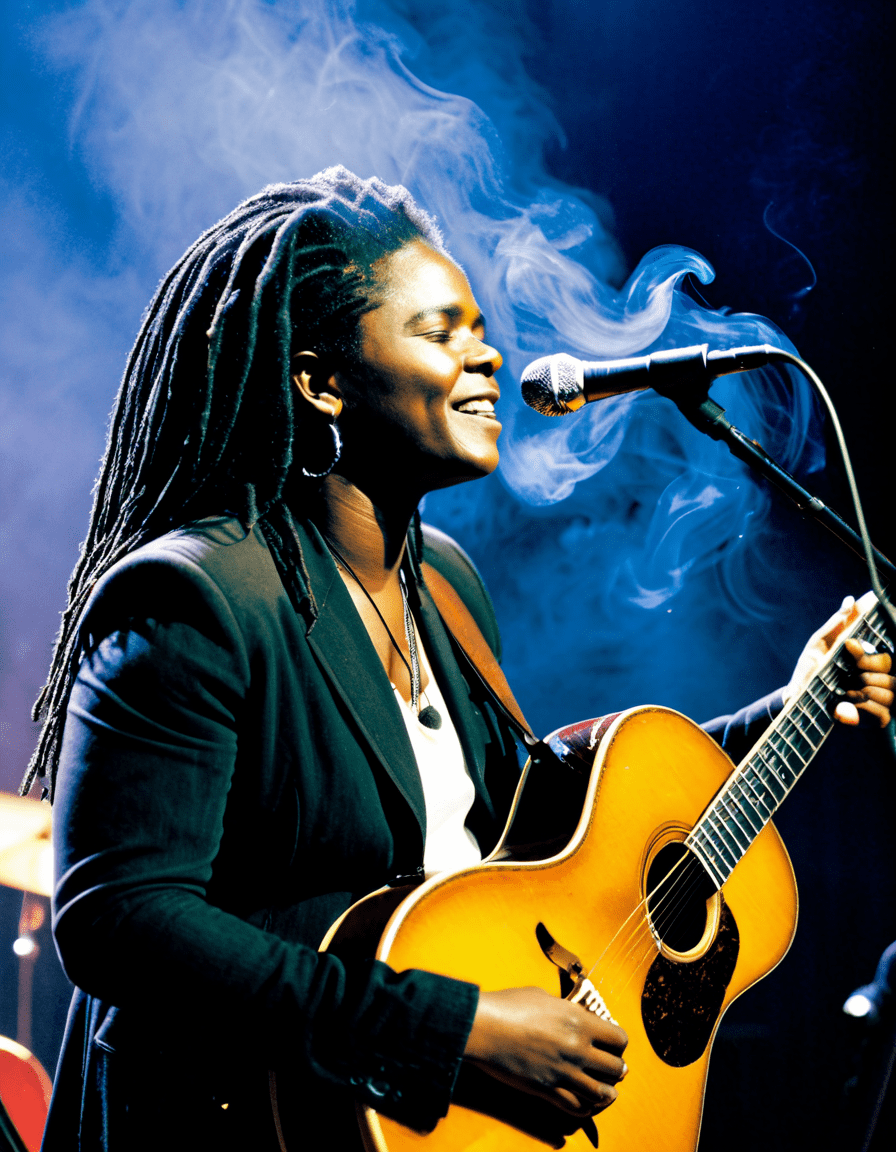
Unpacking the Artistic Legacy of Tracy Chapman
Diving deeper into Tracy Chapman’s artistry reveals a wealth of contributions that resonate within our cultural landscape. From her rich musical tapestry to the powerful themes she explores, here’s how she’s shaped pop culture:
Melodic Simplicity and Complexity in Lyrics
Tracy’s songs often strike a balance between melodic simplicity and thematic complexity. Powerful examples, like “Baby Can I Hold You,” showcase how she blends straightforward melodies with emotionally packed storytelling. This duality influences modern musicians to explore vulnerability, making their songs resonate on a deeply personal level with audiences.
The Evolution of Acoustic Music
The significance of Tracy Chapman’s acoustic roots can’t be overstated. Her influence sparked a resurgence of acoustic music in the late ’90s and early 2000s. Artists like Ed Sheeran and Adele have embraced this simplicity, showcasing lyrical intimacy just as Chapman did, demonstrating that less can be more when it comes to emotional expression.
Intersections with Film
Tracy’s music also finds its way into cinema, adding depth to numerous films. A prime example is her heart-touching song “Sing for You” in “The Pursuit of Happyness,” which perfectly complements the movie’s themes of resilience. Actors like Kristen Stewart, who often tackle complex emotional narratives, draw inspiration from Chapman’s storytelling style, manifesting the power of song within the film industry.

Embracing Change: Chapman’s Ongoing Influence
Tracy Chapman stands tall as a cultural icon, with her powerful musical narratives inspiring not just musicians but also future generations. Her commitment to authenticity serves as a guiding light for up-and-coming artists navigating a complex industry.
As she continues to perform, Chapman shapes new waves of musicians who strive to find their unique voices amid a constantly changing landscape. Her legacy isn’t just about her notes and lyrics; it’s a powerful message embodied in her journey, resonating with anyone who seeks strength through music during life’s challenges.
In a world where artistry and activism increasingly intersect, Tracy Chapman remains a symbol of resilience, reminding us all that music has the extraordinary ability to transcend boundaries. Whether you find her influence in your favorite songs, films, or stories, one thing is certain—Tracy Chapman’s impact will echo through the ages, making her a timeless figure in the art of storytelling through music.
Tracy Chapman: Inspiring Stories and Music
A Voice of Change
Tracy Chapman’s soulful melodies and thought-provoking lyrics have left an indelible mark on the music scene since her breakthrough in the late 1980s. With hits like “Fast Car” and “Give Me One Reason,” she hasn’t just entertained; she’s sparked conversations about social justice and personal struggle. Did you know that Tracy’s self-titled debut album went on to win three Grammy Awards? That’s right! Her powerful storytelling has inspired artists across genres and has been paralleled with the acclaim of renowned performances like those in the To Kill a Mockingbird adaptation, where the depths of human emotion are so keenly felt.
Hop onto any playlist, and chances are you’ll encounter her songs weaving effortlessly through modern classics. In fact, her influence stretches into films and TV—much like the Bad Boys for Life cast, who impacted pop culture through their relentless charisma. Fun fact: Tracy performed at the 1992 Democratic National Convention, a testament to how her music transcends entertainment and taps into political activism.
Behind the Music
Tracy’s journey began in Cleveland, Ohio, before she made waves in the bustling music scene of New York City. Her unique sound blends folk, rock, and pop, making her a voice that resonates with many. Speaking of resonating, Mandy Moore once cited Tracy as a significant influence on her own work, showcasing how the ripples of impactful music can reach across generations. However, Tracy’s potential was almost squashed at the beginning—she faced considerable challenges in the industry, standing tall just like the Dukes of Hazzard 2005, who brought their own brand of rebellious flair to the screen.
What’s even more interesting is how Tracy’s music plays a role in spreading messages of equality and hope, often resonating with current issues as voiced by activists like Jay Bhattacharya. This connection between art and activism emphasizes that music is often a powerful tool for change, something Tracy champions beautifully.
A Lasting Legacy
As Tracy Chapman continues to inspire, her music remains a soundtrack for many who are looking for solace in turbulent times. With the aesthetics of winter nail Designs buzzing over social media, it’s clear that creativity and self-expression manifest in varying forms, whether through art, fashion, or music. As Tracy’s legacy flourishes, let’s appreciate how her storytelling shapes the lives of individuals seeking connection in their own narratives. Just as the cast of How to Train Your Dragon brought stories to life in vibrant ways, Tracy’s potent lyrics invite us all to reflect, feel, and strive for a better tomorrow.
So, the next time you hear one of her iconic songs, remember that you’re not just listening to music; you’re engaging with an artist who has consistently used her platform for profound impact.
